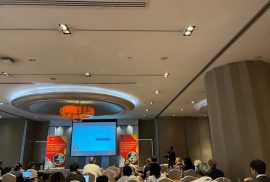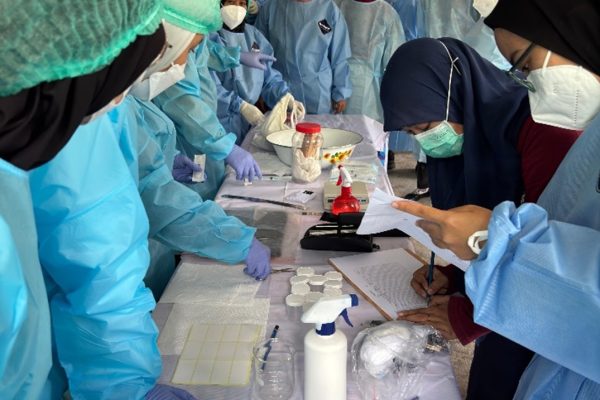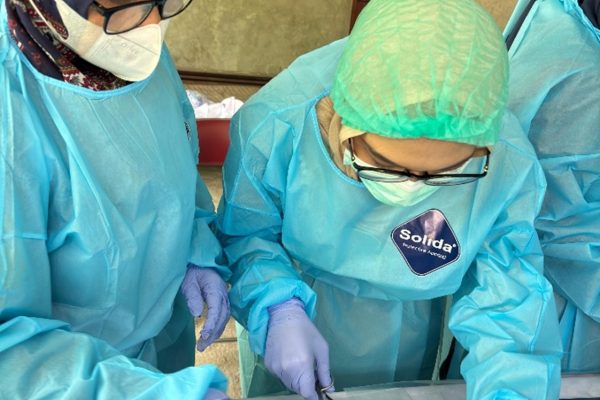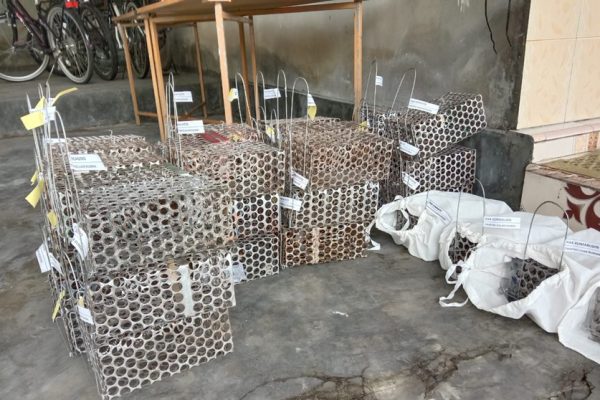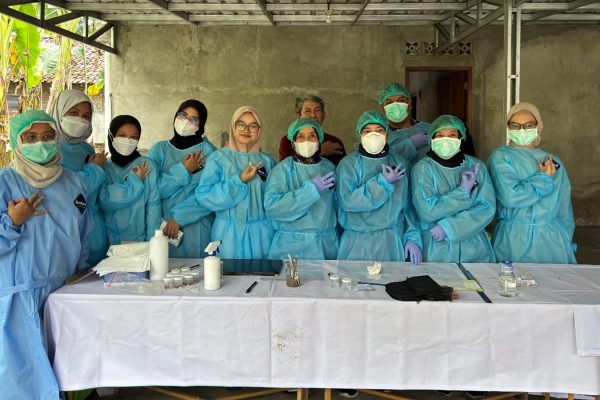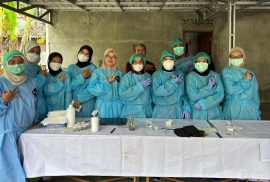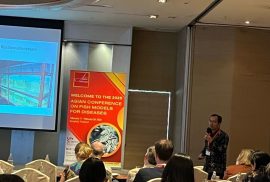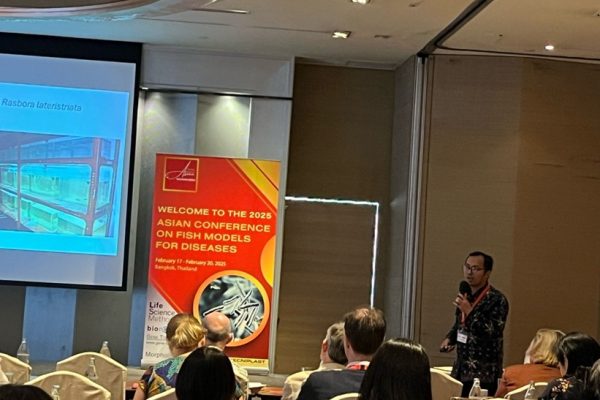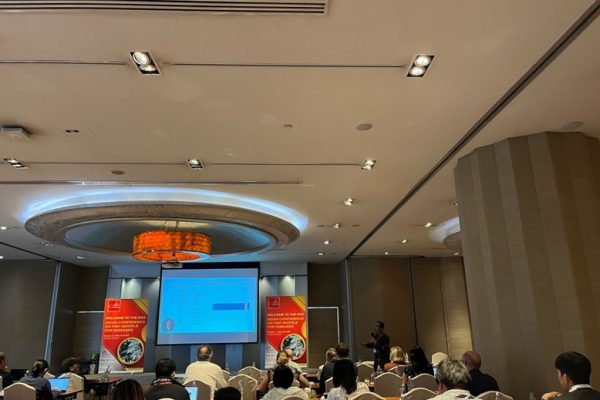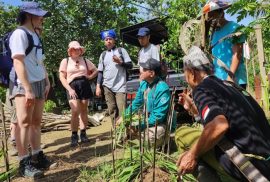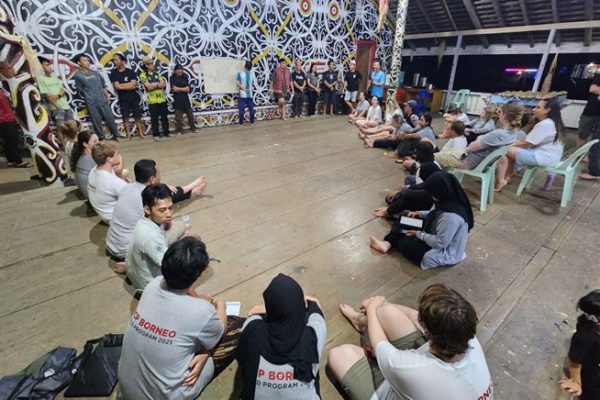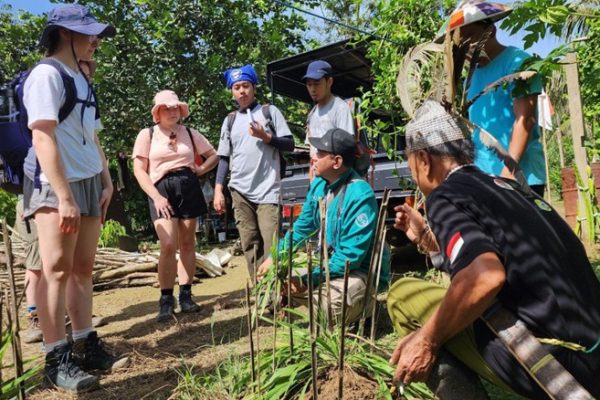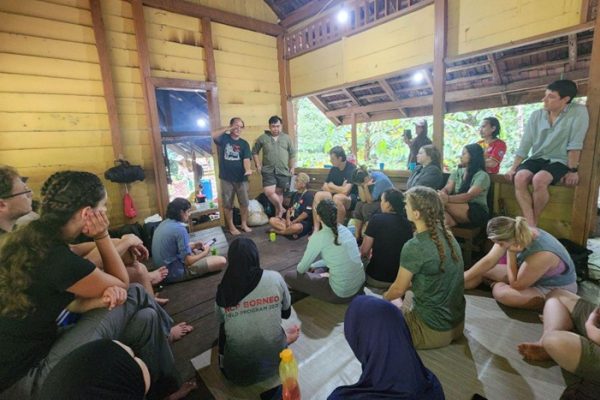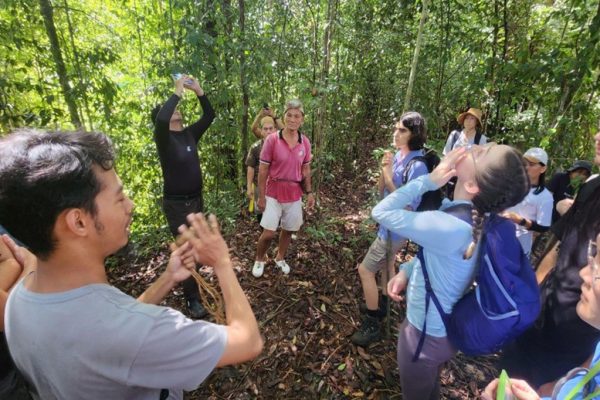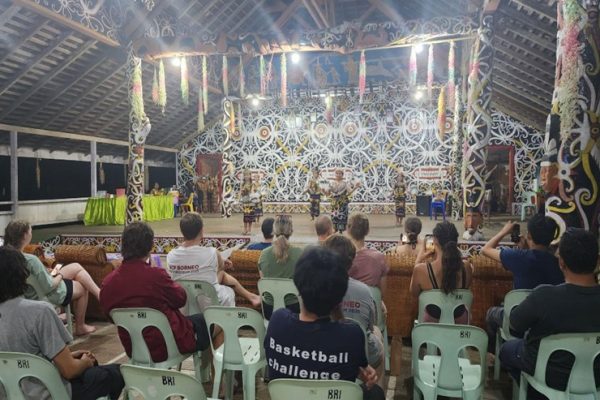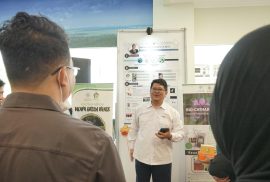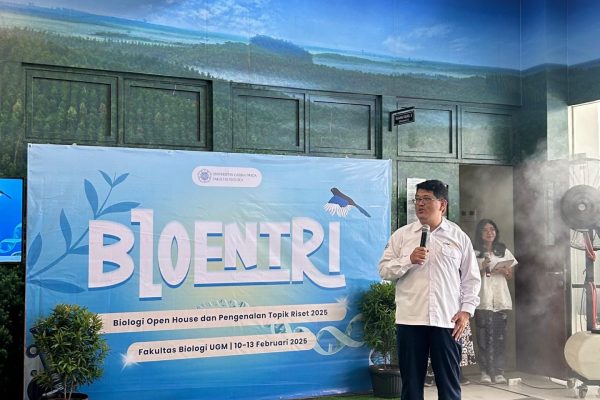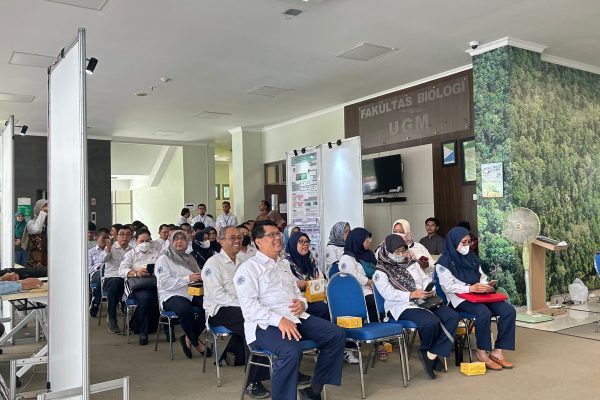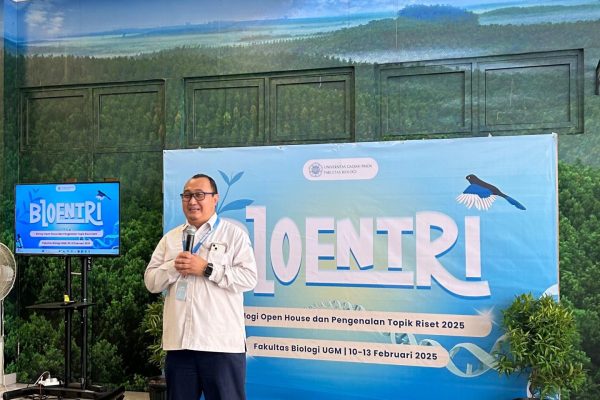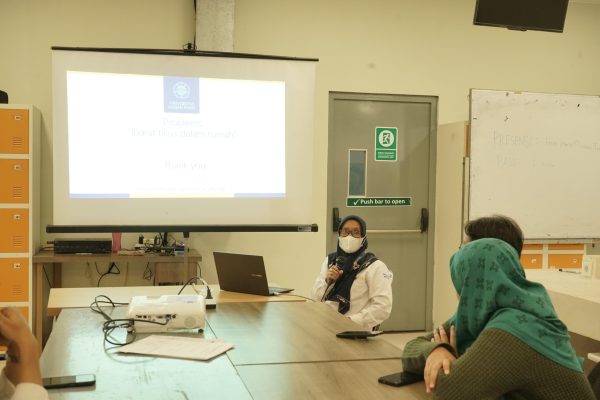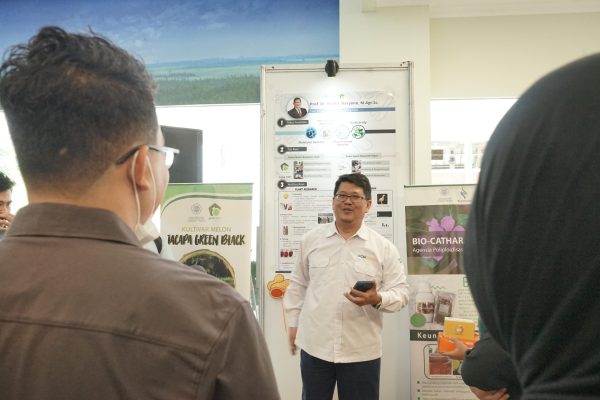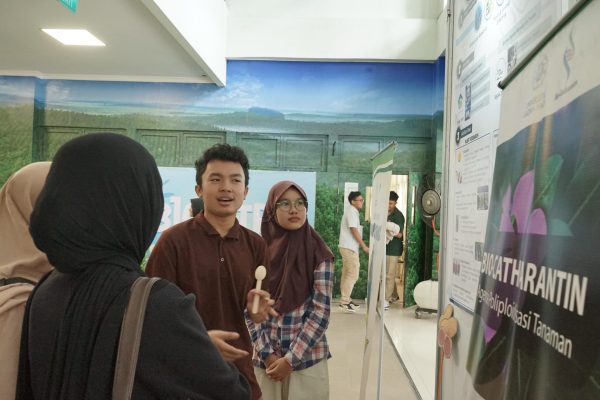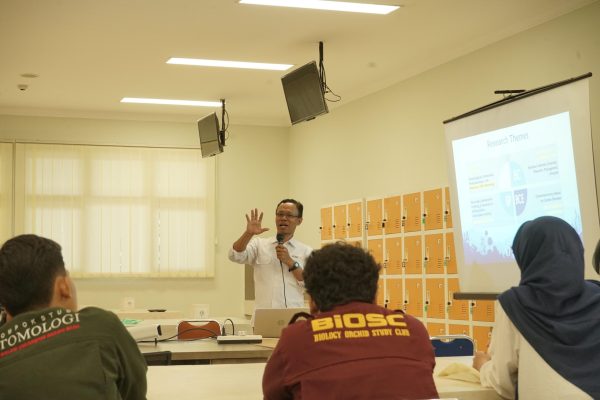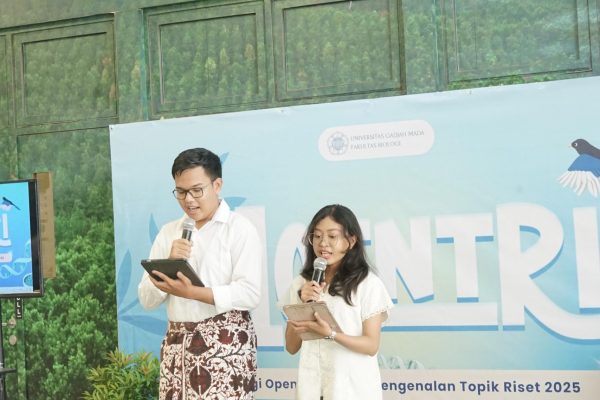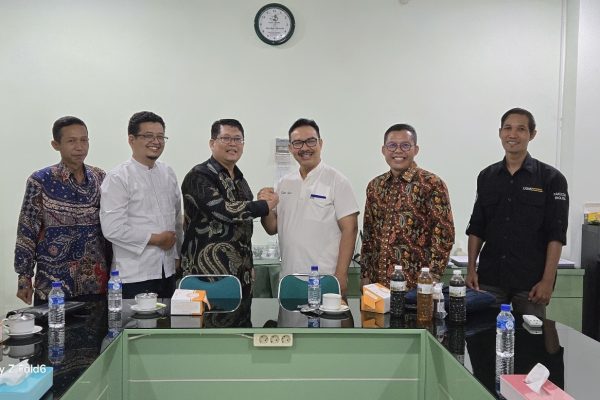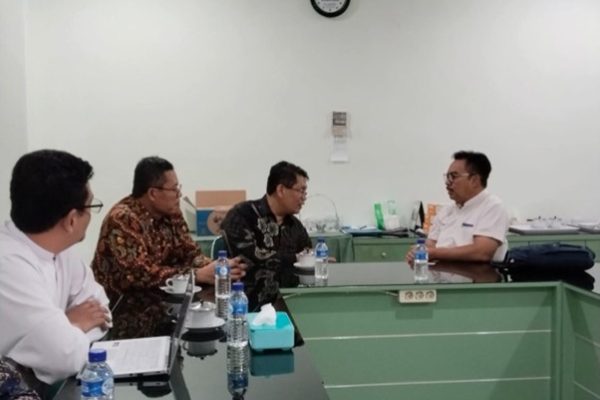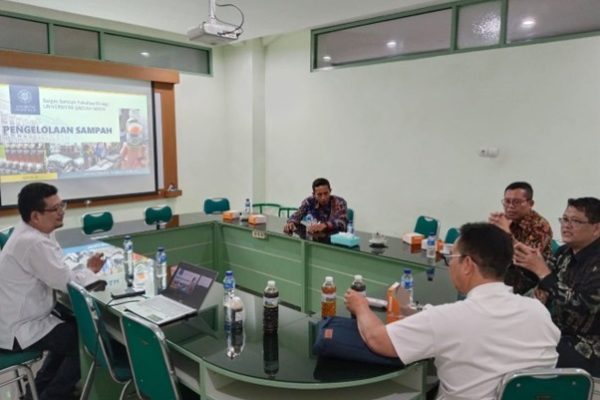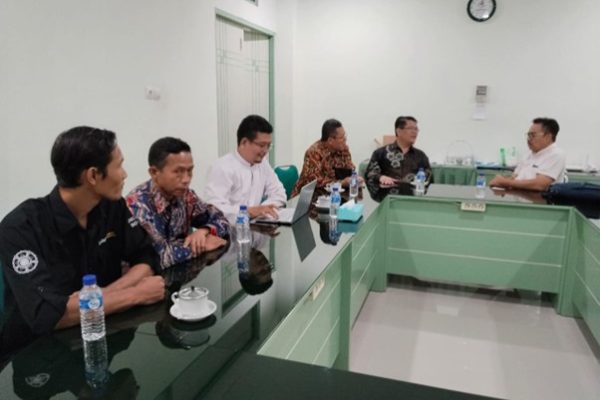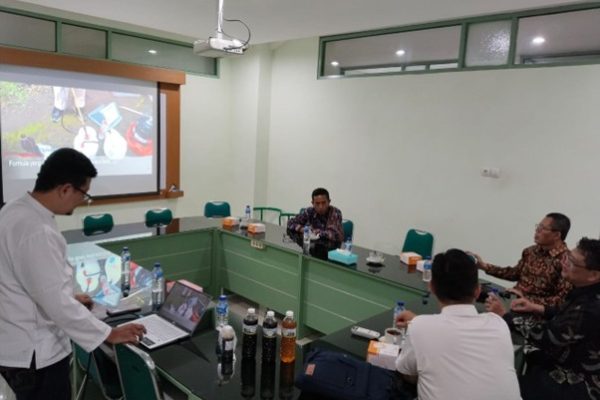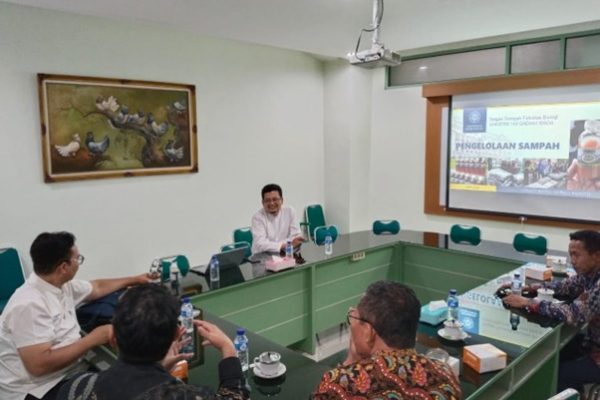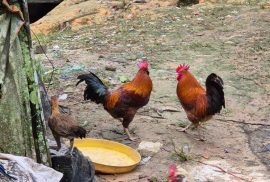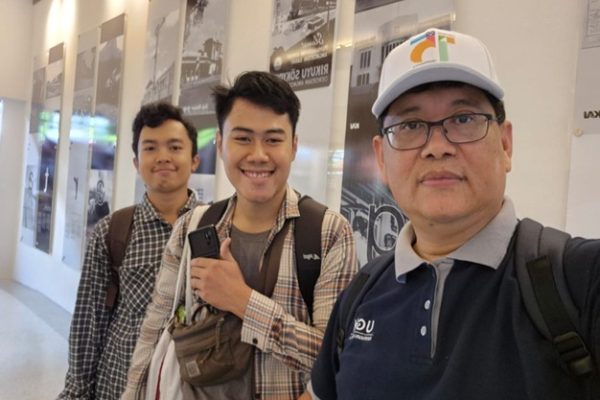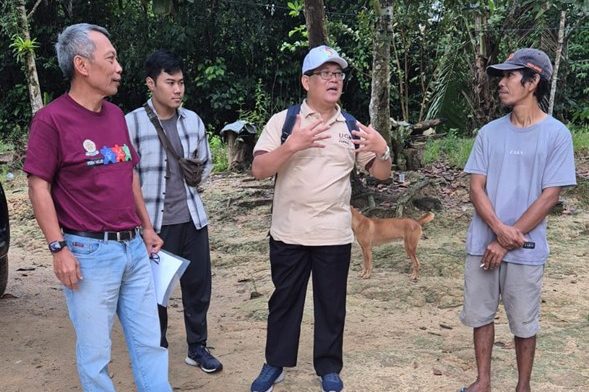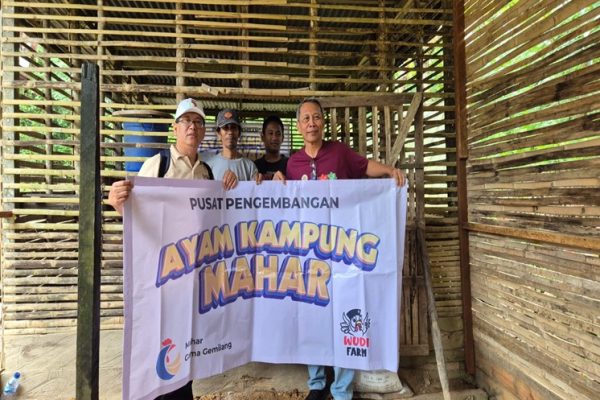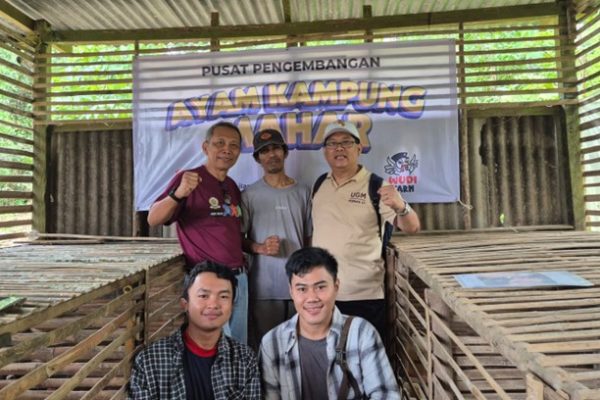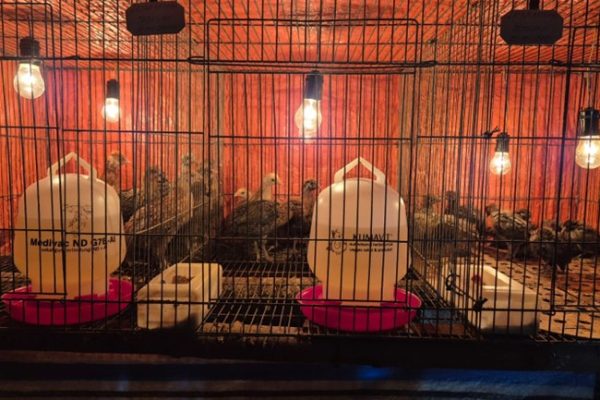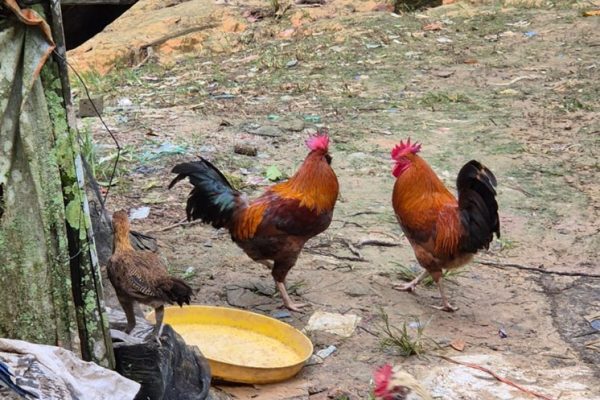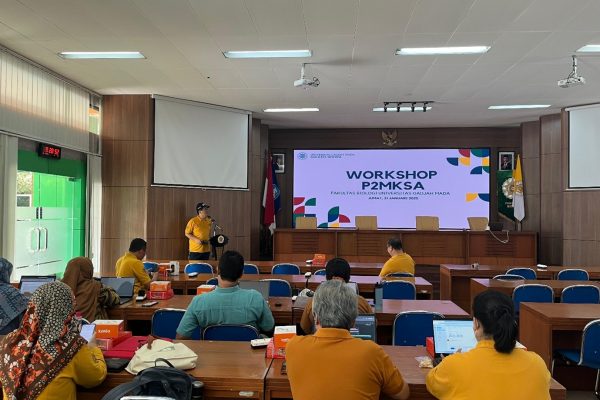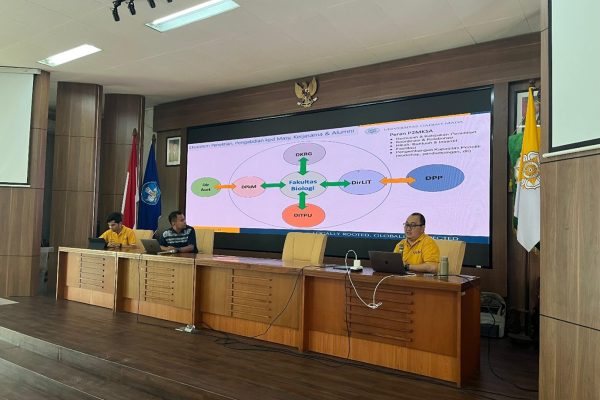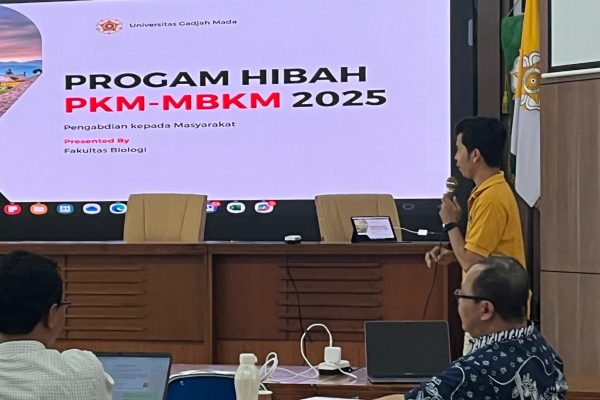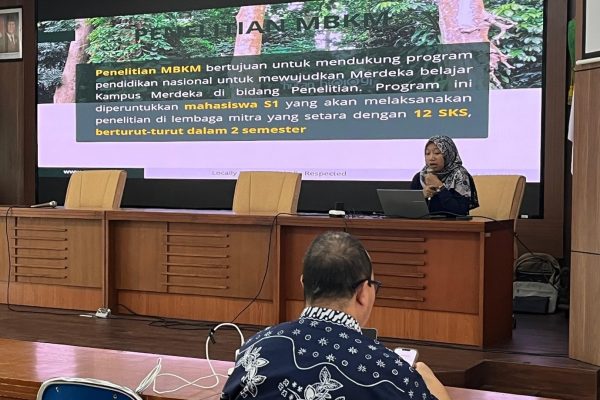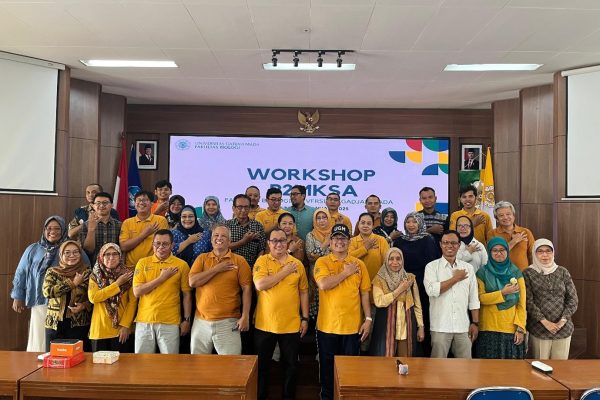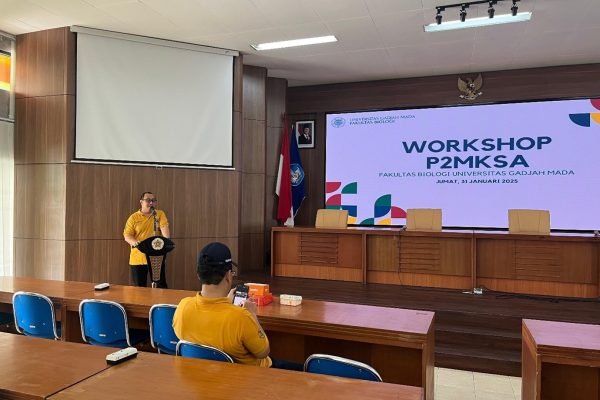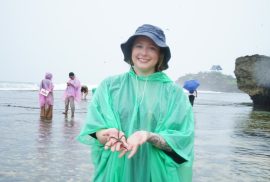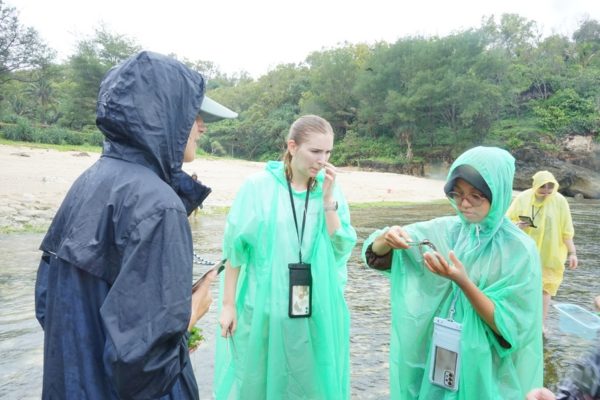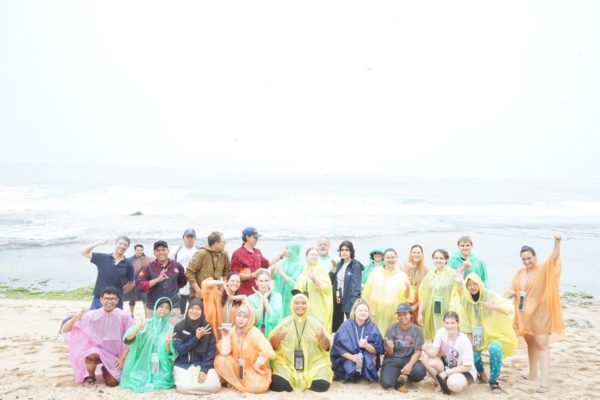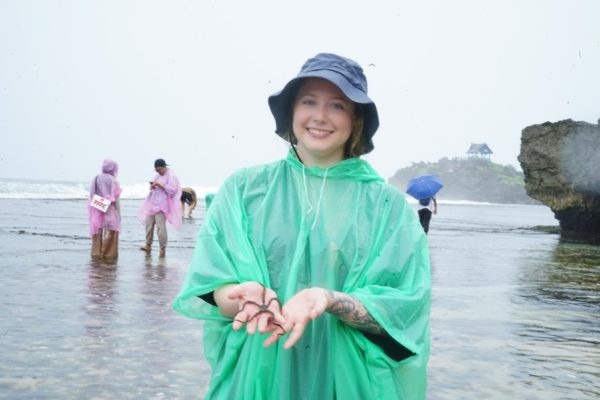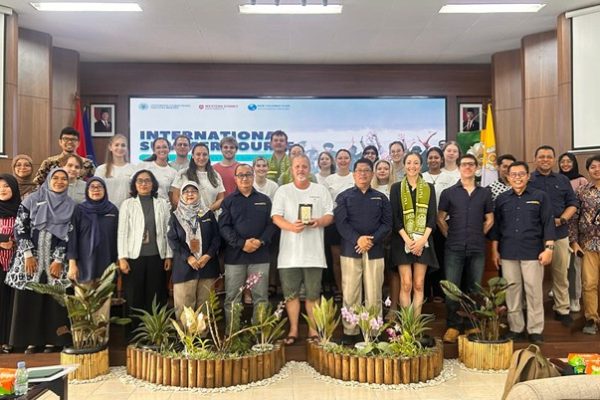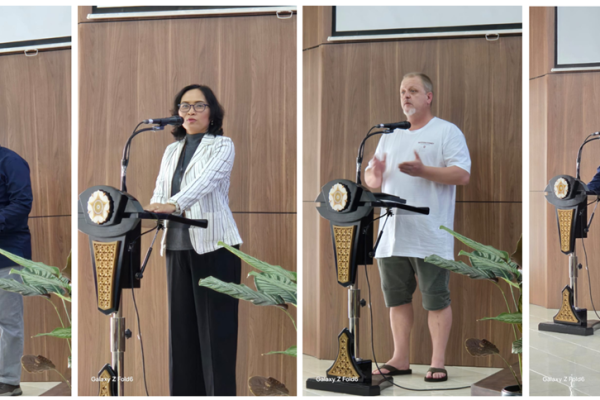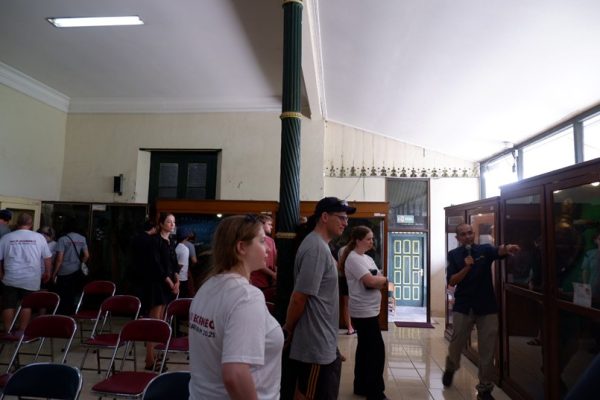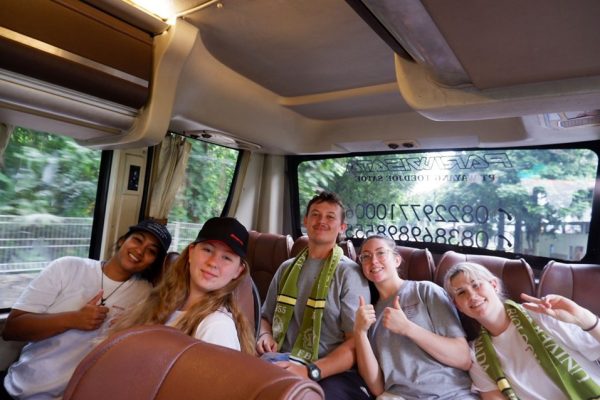Arsip:
SDG 3 : Establish Good Health and Well-Being
Two lecturers from Faculty of Biology Universitas Gadjah Mada (UGM); Dr. Luthfi Nurhidayat and Dr. Tri Rini Nuringtyas showcased Indonesia’s growing contributions to biomedical research at The 2025 Asian Conference on Fish Models for Diseases, held from February 17–19 in Bangkok, Thailand. This conference was joined by leading scientists from across Asia and beyond in sharing advancements in the use of fish as model organisms for disease research.
Dr. Luthfi Nurhidayat delivered an oral presentation titled “Indonesia’s Native Fish: From Aquaculture Towards Biomedical Research,” highlighting the untapped potential of the native Rasbora lateristriata (commonly known as wader pari) as an alternative model organism. Initially studied for aquaculture, R. lateristriata shows promise in biomedical applications due to its fast embryonic development, resilience to warm temperatures, and its suitability for natural compound testing—an area in which Indonesia holds vast potential.
In a flash poster session, Dr. Tri Rini Nuringtyas presented her study titled “Antidiabetic Potential of Gyrinops versteegii Agarwood Leaf Extract in Zebrafish Models.” Her research demonstrates the efficacy of agarwood leaf extract as a potential antidiabetic agent, successfully tested using zebrafish.
This international engagement is part of UGM’s efforts to support the United Nations Sustainable Development Goal (SDG) 3: Good Health and Well-being. Participation in the conference strengthens Indonesia’s presence in fish-based biomedical research and opens doors for international collaboration in health-related model development.
Bantul, Indonesia – February 19, 2025 – In a proactive public health initiative, students from the Faculty of Biology, Universitas Gadjah Mada (UGM) collaborated with the Bantul District Health Office and the Yogyakarta Public Health Laboratory Center (BBLABKESMAS) to conduct rodent surveillance in Beran Hamlet, Canden Village, Jetis Subdistrict, Bantul Regency. This joint effort was initiated following confirmed human cases of leptospirosis and hantavirus in the area, with the infections suspected to have also affected other family and community members.
The surveillance began on Tuesday, February 18, with the placement of 50 single-live rat traps. As a result, nine traps captured rats (Rattus spp.) and two traps captured Asian house shrews (Suncus murinus), both considered potential reservoirs of disease.
The student research team comprised Dita Dwi Putri, Zahwa Khoirun Nisa, Dhiyaa Sekar Hanum, Shaila Revita Zahra, and Trissa Amalia Putri and Rizky Nur Endah Sari. Their participation is part of the Merdeka Belajar Kampus Merdeka (MBKM) Research Program, supervised by Dr. Dra. Rr. Upiek Ngesti Wibawaning Astuti, B.Sc., DAP&E, M.Biomed.
Moving forward, molecular analysis will be conducted on the captured specimens to detect the presence of Leptospira bacteria and hantavirus, providing crucial data to inform future public health responses. This initiative reinforces the Faculty of Biology UGM’s dedication to community welfare and aligns with Sustainable Development Goals (SDGs), including SDGs No 3: Good Health and Well-being, SDGs No 4: Quality Education, SDGs No 15: Life on Land, and SDGs No 17: Partnerships for the Goals.
Bangkok, Thailand – Dr. Luthfi Nurhidayat and Dr. Tri Rini Nuringtyas, lecturers from the Faculty of Biology, Universitas Gadjah Mada (UGM), participated in The 2025 Asian Conference on Fish Models for Diseases, held on February 17–19, 2025, in Bangkok, Thailand. This conference was attended by renowned scientists from various countries who use fish as model organisms in disease studies.
During the event, Dr. Luthfi Nurhidayat delivered a presentation titled “Indonesia’s Native Fish: From Aquaculture Towards Biomedical Research”. He highlighted the potential of the wader pari fish (Rasbora lateristriata), initially studied for aquaculture purposes, as a model organism in disease research. Dr. Luthfi emphasized that Indonesia possesses many natural compounds that have been characterized and have medicinal potential, yet their testing remains limited due to the constraints of using mice or rats as model organisms. The wader pari fish offers advantages such as a faster embryonic development compared to zebrafish, resilience to warm temperatures, and previous successful applications in testing natural compounds.
Meanwhile, Dr. Tri Rini Nuringtyas presented her research in a flash poster format, titled “Antidiabetic Potential of Gyrinops versteegii Agarwood Leaf Extract in Zebrafish Models”. She explained that her study demonstrated the antidiabetic potential of agarwood leaf extract, which was tested using zebrafish models.
The participation of the Faculty of Biology UGM lecturers in this conference is part of their efforts to support the achievement of Sustainable Development Goal (SDG) number 3: Good Health and Well-being. This engagement not only strengthens Indonesia’s role in fish-based biomedical research but also opens opportunities for collaboration with international scientists in advancing fish models for health research.
Yogyakarta, Indonesia – November 30, 2024 – In support of national food security initiatives, the ‘GAMA AYAM’ team held a community empowerment program in collaboration with the Srikandi Women Farmers Group (KWT Srikandi) from Mrican, focusing on the application of incubation and farming technology for local laying hens, known as “Mahar.” The event took place in Sawit Sari, Caturtunggal, Yogyakarta, and was supported by the Pertamina Foundation.
This community outreach aimed to introduce sustainable agribusiness practices, share practical knowledge on egg incubation technology, and provide training in local poultry farm management. The “Mahar” chicken breed was chosen for its environmental adaptability, high productivity, and economic potential for small and medium-sized enterprises.
The program was met with great enthusiasm from members of KWT Srikandi, who actively participated in discussions and learning sessions. The event was moderated by Dian Sartika and Prananda Imammuddin Dzaki, with the keynote presentation delivered by Prof. Dr. Budi Setiadi Daryono, M.Agr.Sc., who shared his expertise on local chicken research and the “Mahar” farming system.
An interactive Q&A session followed, marked by high engagement from the participants. The second session featured Mr. Wangdi Wusono, who introduced the design and operation of egg incubators, further deepening participants’ understanding of poultry technology.
The event continued with an energetic break session filled with ice-breaking activities and door prize giveaways, creating a warm and inclusive atmosphere. Participants then visited the GAMA AYAM demonstration coop, where they observed the “Mahar” chickens and gained firsthand experience of the farming environment.
The program concluded with a group photo session and a communal lunch, fostering a sense of unity and shared purpose among participants.
This initiative contributes to the achievement of the United Nations Sustainable Development Goals (SDGs), specifically Goal 8: Decent Work and Economic Growth and Goal 12: Responsible Consumption and Production.
This initiative contributes to the achievement of the United Nations Sustainable Development Goals (SDGs), specifically Goal 8: Decent Work and Economic Growth and Goal 12: Responsible Consumption and Production.
The Faculty of Biology, Universitas Gadjah Mada (UGM), in collaboration with Western Sydney University (WSU), successfully conducted the International Summer Course (ISC) program in Setulang Village and the Tane Olen Community Forest, Malinau Regency, North Kalimantan. This program followed a series of academic and cultural exchanges held earlier in Yogyakarta and Tarakan.
On Sunday, January 26, 2025, ISC participants arrived in Malinau and continued their journey to Setulang Village. The UGM delegation included two faculty members ; Dr. Rury Eprilurahman and Mukhlish Jamal Musa Holle, M.Env.Sc, D.Phil. and six students. The WSU delegation, consisting of two staff members, Dr. John Hunt and Louise Graham, and 16 students.
The program commenced with a warm welcome from the Setulang community, featuring traditional dance performances and remarks from the Village Head, Mr. Saleh Wang. Field activities began the following day with observations of rice fields and home gardens owned by local residents, including an introduction to farming system and the diversity of plant species cultivated in the Mr. Philius’s home garden, a village elder.
On January 28, the program moved to the Tane Olen Community Forest, a lowland dipterocarp forest known for its rich biodiversity. Participants traveled by pickup and continued on foot along river trails to two basecamps: Lepo Kalung and Waterfall Basecamp. From January 28 to February 5, daily activities included birdwatching, jungle trekking, herpetofauna observation (herping), and thematic discussions with local guides and researchers.
Dr. Rury Eprilurahman led herpetofauna identification sessions and delivered a herpetology sharing session on January 29. On January 30, local guides introduced participants to useful plant species during a trek through riparian and hilly zones. That evening, an ethnobotany discussion was held between ISC participants and the local community.
Dr. Rury Eprilurahman led herpetofauna identification sessions and delivered a herpetology sharing session on January 29. On January 30, local guides introduced participants to useful plant species during a trek through riparian and hilly zones. That evening, an ethnobotany discussion was held between ISC participants and the local community.
A key highlight took place on February 1 with a dialogue involving village elder Mr. Philius, Village Head Mr. Saleh Wang, and forest management representatives Andrew and Ran. The discussion focused on the history of Setulang, community conservation efforts, and sustainable forest management practices in Tane Olen.
The ISC program concluded on February 5 with a closing ceremony in Setulang Village. The event was attended by the Subdistrict Head of South Malinau Hilir, village officials, and community leaders, and featured traditional dance performances by residents of all ages.
This international collaboration not only enhanced cross-cultural academic exchange but also embodied the principles of Sustainable Development Goals (SDGs) 11 (Sustainable Cities and Communities), 14 (Life Below Water), and 15 (Life on Land).
Faculty of Biology UGM held Biology Open House and Introduction of Research Topics [BIOENTRI] 2025, an event that aims to introduce students to various research topics that can be an option in preparing a thesis, thesis, or dissertation. Through this activity, students have the opportunity to discuss directly with their supervisors according to their fields of expertise, so that they can gain a deeper understanding of the available research.
The event was officially opened on February 10, 2025 by the Dean of Faculty of Biology UGM, Prof. Dr. Budi Setiadi Daryono, M.Agr.Sc. The series of events continued with presentation sessions from lecturers in Room 1, Room 2, and Teaching Lab, as well as research poster exhibitions in the booths that have been provided. Through this forum, students are expected to find research topics that suit their interests and academic plans. BIOENTRI 2025 will run for four days, from February 10 to 13, 2025. This activity received high enthusiasm as evidenced by the presence of students from undergraduate to postgraduate levels.
With BIOENTRI 2025, Faculty of Biology UGM hopes to facilitate students in determining the direction of their research and strengthen the synergy between students and lecturers in the world of research.
BIOENTRI 2025 activities also directly contribute to the achievement of Sustainable Development Goals (SDGs), especially SDG number 4 on Quality Education and have a positive impact on achieving various other SDG targets, including the protection of biodiversity, ecosystem restoration (13, 14, 15), and improving community welfare through innovations in biotechnology and natural resource management (9, 11, 13).
On January 31, 2025, a delegation from the Waste Management Task Force of the Faculty of Biology at Gadjah Mada University (UGM) met with the newly elected Mayor of Yogyakarta, Dr. Hasto Wardoyo, Sp.OG (K), to discuss potential collaborations for waste management in the city. The meeting took place in Meeting Room IV F at Sadewa Hospital, where both parties expressed their commitment to addressing the pressing waste management issues facing Yogyakarta.
The delegation from UGM included prominent figures such as Prof. Dr. Budi Setiadi Daryono, the Dean of the Faculty, Dr. Slamet Widiyanto, M.Sc., the Vice Dean for Finance and Human Resource, Sukirno, S.Si., M.Sc., Ph.D., the Head of the Task Force, and other members including Mr. Suharjita and Mr. Heru. The meeting aimed to explore collaborative efforts to enhance environmental sustainability and improve agricultural productivity through effective waste management strategies.
Mayor Hasto highlighted the alarming statistic that Yogyakarta generates approximately 300 tons of waste daily, necessitating serious management from upstream to downstream. He emphasized the importance of implementing clean technologies and innovative solutions to tackle this issue, which directly impacts food security and the overall health of the local ecosystem.
During the discussion, the Mayor introduced his vision for the “One Village One Sister University” and “One Village One Sister Company” programs. These initiatives aim to empower local communities by fostering partnerships with educational institutions and businesses to create sustainable waste management practices. The collaboration with UGM’s Faculty of Biology is expected to play a crucial role in this endeavor.
The UGM delegation proposed the application of various technological products, including probiotic solutions and organic fertilizers like BIOFERTI, which have been developed to address the challenges posed by organic waste. These products not only help in waste reduction but also enhance soil health and agricultural productivity, contributing to food security in the region.
The meeting also focused on the importance of ecosystem protection and the need for a comprehensive approach to waste management that considers environmental impacts. The UGM team emphasized the significance of educating the community about waste segregation and the benefits of using clean technologies in daily practices.
Both parties agreed on the necessity of conducting further research and pilot projects to assess the effectiveness of the proposed solutions. The collaboration aims to create a model for sustainable waste management that can be replicated in other cities facing similar challenges.
As the meeting concluded, Mayor Hasto expressed his gratitude for the UGM delegation’s commitment to environmental issues and their willingness to collaborate. He reiterated that effective waste management is not just a municipal responsibility but a collective effort that requires the involvement of all stakeholders, including academia, government, and the community.
The partnership between UGM’s Faculty of Biology and the Yogyakarta city government marks a significant step towards achieving the Sustainable Development Goals (SDGs), particularly in areas related to environmental sustainability, food security, and community empowerment. The collaboration is expected to yield innovative solutions that will benefit both the city and its residents in the long run.
The Faculty of Biology, Universitas Gadjah Mada (UGM), through its flagship Gama Ayam research program, has launched a collaborative initiative to promote egg self-sufficiency in Indonesia. In partnership with KAGAMA East Kalimantan and local poultry farmers, the team is cultivating the MAHAR village chicken in Balikpapan, one of the buffer zones of the future capital city, IKN Nusantara.
This initiative is a direct application of UGM’s research innovation. The MAHAR chicken strain originally developed at UGM’s Sawitsari Research Station has been the subject of continued research and refinement under the leadership of Prof. Dr. Budi Setiadi Daryono, M.Agr.Sc., Head of the Gama Ayam Research Team. The cultivation activities include egg collection, hatching, brooding, selection, and breeding to develop a robust and productive indigenous laying chicken strain.
Drs. Lalu Fauzul Idhi, representing KAGAMA East Kalimantan, has played a key role in facilitating regional collaboration. Local farmers, including Mr. Sultan and his team, have already shown promising results, successfully raising the MAHAR chickens to the hundreds in a short period.
To assess progress, the Gama Ayam team visited the Balikpapan site on February 12, 2025, represented by Prananda Imammuddin Dzaki, Yusuf Febrianta, and Prof. Budi. The visit focused on genetic monitoring, performance evaluation, and knowledge sharing related to hatching success and reproductive development.
This program support Sustainable Development Goals (SDGs), especially SDGs No.8 on Decent Work and Economic Growth, by promoting village-based poultry farming; SDGs No.11 on Sustainable Cities and Communities, through local food production initiatives;and SDGs No 17 on Partnerships for the Goals, via committed collaboration between academia, alumni, and the farming community.
The MAHAR chicken is projected to become Indonesia’s leading egg-laying village chicken strain, contributing significantly to Indonesia’s food resilience and rural economic empowerment.
Yogyakarta, January 31, 2025 – The Faculty of Biology, Universitas Gadjah Mada (UGM), held the Research, Community Service, Collaboration, and Alumni Workshop (Workshop P2MKSA) on Friday, January 31, 2025. The event took place at the Auditorium Biologi Tropika from 9:00 AM to 3:00 PM WIB and was attended by all lecturers of the Faculty of Biology UGM.
The workshop was officially opened by Dr. Eko Agus Suyono, M.App.Sc., Vice Dean for Research, Community Service, Collaboration, and Alumni Affairs, along with Prof. Dr. Budi Setiadi Daryono, M.Agr.Sc., Dean of the Faculty of Biology UGM. After the opening ceremony, a group photo session was held to document the event.
In his opening remarks, Dr. Eko Agus Suyono, M.App.Sc., stated that the workshop aims to gather input from lecturers regarding the 2024–2028 Master Plan for Research and Community Service at the Faculty of Biology UGM. This plan will later be submitted to the Faculty Senate for approval. Additionally, in the afternoon session, the P2MKSA team would provide an overview of various research and community service grants offered by the faculty.
“I highly appreciate the role of young lecturers in drafting this Master Plan and other programs. They are the next generation who will lead the Faculty of Biology toward greater progress and innovation,” he added.
“I highly appreciate the role of young lecturers in drafting this Master Plan and other programs. They are the next generation who will lead the Faculty of Biology toward greater progress and innovation,” he added.
Meanwhile, Prof. Dr. Budi Setiadi Daryono, M.Agr.Sc., emphasized that the Master Plan for Research and Community Service is crucial for supporting the faculty’s accreditation process, both for LAMSAMA and other accreditations.
“This Master Plan will be a strategic document that not only guides the faculty’s research and community service but also plays an important role in the accreditation process. With proper planning and the support of all lecturers, we can continuously improve the academic quality and contribution of the Faculty of Biology UGM, both nationally and internationally,” said Prof. Budi.
“This Master Plan will be a strategic document that not only guides the faculty’s research and community service but also plays an important role in the accreditation process. With proper planning and the support of all lecturers, we can continuously improve the academic quality and contribution of the Faculty of Biology UGM, both nationally and internationally,” said Prof. Budi.
Discussion on the Master Plan for Research and Community Service
During the first session, participants received a presentation on the Master Plan for Research and Community Service delivered by Dr. Eko Agus Suyono, M.App.Sc., Dr. Fajar Sofyantoro, S.Si., M.Sc., Dr. Dwi Sendi Priyono, S.Si., M.Si., and Dr. Wiko Arif Wibowo, S.Si. This session provided insights into the research and community service direction to be developed by the Faculty of Biology UGM, highlighting innovations and strategies for implementing research outcomes in society.
Socialization of Research and Community Service Grants
After the break for prayer and lunch, the agenda continued with the Socialization of Research and Community Service Grants, led by Dr. Wiko Arif Wibowo, S.Si., and Dr. Aprilia Sufi Subiastuti, S.Si. The session covered various research and community service grant opportunities available for lecturers at the Faculty of Biology UGM.
The workshop concluded at 3:00 PM with a closing session by the Master of Ceremony. It is hoped that through this activity, all lecturers at the Faculty of Biology UGM will be more actively involved in impactful research and community service, as well as strengthen collaborative networks with various stakeholders.
Yogyakarta, 22 January 2025 – Faculty of Biology, Universitas Gadjah Mada (UGM) together with Western Sydney University (WSU) officially opened the International Summer Course (ISC) at the Tropical Biology Auditorium, Faculty of Biology UGM. This activity took place in two locations, at UGM, Yogyakarta on 21-23 January 2025 and continued in Tarakan, Kalimantan on 24 January – 8 February 2025.
The ISC opening event was attended by 16 WSU students, 6 UGM students, 3 WSU staff-lecturers, and UGM lecturers. The opening begins with a report from Dr. Eko Agus Suyono, Vice Dean for Research, Community Service, Collaboration and Alumni Affairs, Faculty of Biology UGM, who also acts as Chair of the International Summer Course Organizer. He revealed that this activity was a follow-up to the collaboration between UGM and WSU that had been established over the last few years.
In his speech, Prof. John Charles Hunt, WSU lecturer, hopes that this activity can continue and expand collaboration in the research and academic fields in the future. In line with that, Prof. Dr. Puji Astuti, Director of Partnerships and Global Relations at UGM, expressed her appreciation for this collaboration, and stated that this ISC is the second in January 2025 after collaboration with Monash University and the UGM Vocational School. Prof. Puji also appreciated the focus of the summer course which raised the issue of biodiversity and environmental sustainability as well as UGM’s role in supporting conservation in Kalimantan and Papua.
Dean of the Faculty of Biology UGM, Prof. Dr. Budi Setiadi Daryono also gave a speech and opened the event. He said that Yogyakarta is a special place with its rich culture and nature, and hopes that ISC participants can take advantage of the opportunity to explore various aspects during activities in Yogyakarta. Prof. Budi also emphasized that this ISC is the first in 2025, before the implementation of the regular ISC in July-August.
The event continued with a visit to the Biology Museum, Faculty of Biology UGM, guided by Donan Satria, M.Sc., Lecturer in Animal Systematics, Faculty of Biology. The participants were very enthusiastic in listening to explanations about the history, role and various collections in this museum.
Next, the participants carried out field activities at the Marine Research Station, Faculty of Biology, Porok Beach, Gunung Kidul. This activity includes intertidal sampling and observing biodiversity on the beach. The exploration was guided by Dr. Rury Eprilurahman who focuses on animals and Dr.Eng. Thoriq Teja Samudra regarding Macroalgae. Martin Holland, International Summer Course Coordinator from WSU, said that this field trip was a warm-up before the main summer course agenda in Tarakan, Kalimantan.
Through this ISC, it is hoped that collaboration between WSU and the Faculty of Biology UGM can become closer, opening up opportunities for further collaboration in the academic and research fields, as well as contributing to achieving Sustainable Development goals (SDGs). This activity is in line with SDG 14 (Life Below Water), SDG 15 (Life on Land), and SDG 17 (Partnerships for the Goals), which focus on biodiversity conservation, environmental sustainability, and international cooperation.
With this spirit of collaboration, it is hoped that similar activities can continue and strengthen relations between UGM and WSU, as well as support conservation and nature preservation efforts in Indonesia and globally.

